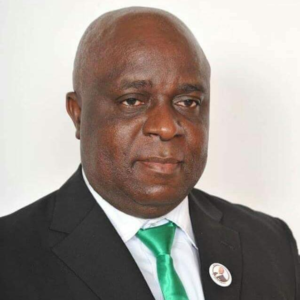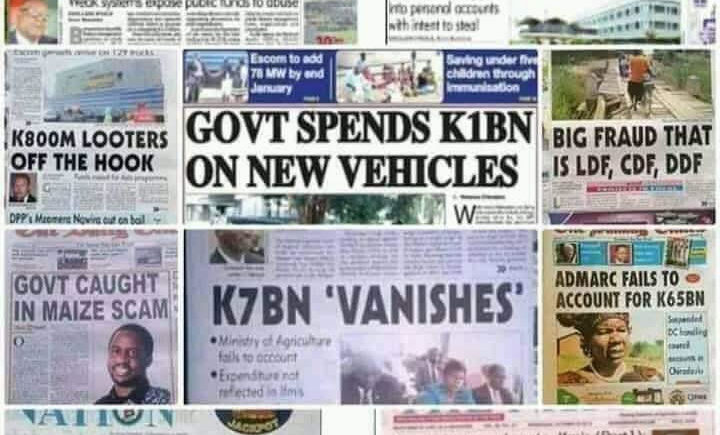This interview was originally featured by the Basel Institute on Governance. Here, CoST Malawi Chairperson Joe Chingani delves into CoST’s work in Malawi, driving policy change to create a more level playing field for business. While there are uncertain times ahead, CoST’s impact in Malawi shows how perseverance, flexibility and leadership can create tangible change on projects and policies.
Q: How does the private sector in Malawi regard anti-corruption initiatives?
In Malawi, even today there is still a personal and financial cost associated with speaking out about corruption. Whether it’s fewer business opportunities, especially when it comes to public contracts, or the way you are perceived by your industry peers, speaking out about corruption can be alienating.
After almost 10 years I am still the only private-sector representative in the CoST steering group, despite concerted and ongoing efforts to ensure more buy-in from businesses.
Q: What impact has CoST Malawi achieved over the past 10 years? How?
There are two main areas we focus on in our work.
- First, we monitor ongoing public construction projects and produce assurance reports. We highlight any issues uncovered so they can be taken up by the relevant authorities.
- Secondly, we strive to effect positive change at the policy level, towards developing a more transparent process for public tenders and project implementation.
Over the past years, we have seen more and more uptake and action following our assurance reports. For example, in one strategically important road construction project between Kasungu-Msulira and Nkhotakota, we uncovered systematic mismanagement of funds and also some inconsistencies in the awarding of the contract. The media picked up the report and with the additional pressure and public scrutiny, the contract was ultimately retracted and re-tendered.
It is highly motivational to see public contracts that were riddled with corruption being re-tendered. Even in difficult times, we have continued our reporting and assessments of public construction projects. Perseverance and flexibility have been key.
We have also celebrated significant changes in government policies as a result of our work, such as the information-sharing requirements under the 2017 Public Procurement and Disposal of Public Assets Act.
We have also found that consistency is important to effect systemic policy change. For example, we have long criticised the government’s practice of awarding contracts without having the budget approved by Parliament or the assurance that there was indeed sufficient budget in place. This type of behaviour opens the door to corruption and non-transparent business dealings. For years we pressured the government to curb these practices and have finally seen a positive response in the last couple of years.
Q: How does the new CoST public infrastructure information platform fit into the picture?
Our work has evolved over time and now extends beyond just reviewing projects. We want to be proactive and provide expertise and tools to increase transparency in the public procurement process. In order to do so, CoST Malawi set up an online disclosure portal in 2017 that acts as an information platform for public infrastructure projects and contains all relevant documents and information concerning public construction tenders.
We are currently engaging with the relevant public institutions to build trust and socialise the concept. The aim is to create the first comprehensive database on public construction projects in the country.
Q: What was the effect of the Cashgate scandal on the construction sector – and on the work of CoST Malawi?
The 2013 Cashgate scandal centred around the misuse of a newly set-up electronic payment system, which was used to divert over USD 250 million in public funds. These were paid out to companies through an elaborate web of sham public contracts for products and services that were never rendered. It was a devastating blow for the country financially and it has taken years to recover from it.
Phoney construction companies, as well as reputable medium-sized and legally registered companies, were at the heart of many of the sham contracts. And in the heated political environment, it was difficult and sometimes dangerous to push for transparency. So the scandal presented one of the most difficult hurdles that we faced in our work as CoST to date. We had only just started our pilot project in 2011, during a time of support for anti-corruption measures from the government.
As the scandal unfolded, not surprisingly, the political will to address corruption diminished. As a result, we were forced to build stronger bridges and ties with other stakeholders, including not only the media and civil society but also and perhaps most importantly with the public.
Q: How did you engage the public in reporting corruption and mismanagement?
The discontent of the public was growing at an alarming rate, so we decided it was important to enable the public to voice their concerns and moderate/facilitate the discourse with the relevant public institutions.
We set up a toll-free texting service where citizens from across the country were able to report any mismanagement of public construction projects. To follow up, we would organise a radio panel with government officials to respond to the concerns of the public. In Malawi, communicating through the medium of public radio is still the best way to reach a large audience as not everyone has access to the internet, especially in the rural areas.
Making sure the information from our assurance reports reaches our audience has also been a concern. As we are not a political advocacy organisation we rely on the media, which has over the years become an important partner and ally in the work that we do.
Sensitising the media and other stakeholders to issues of corruption and lack of transparency in the construction sector is a priority for us so we can mobilise and engage more people in the fight against corruption.
Q: Looking ahead, what’s next for CoST Malawi?
We are looking into the future with great expectations but also realism. We want to extend the reach of our work within Malawi and continue to be a voice for transparency in the construction sector.
We are currently facing uncertain times under Covid-19, but there are also some unexpected windows of opportunities that are opening up. For the first time in the history of Malawi, an election has been overturned because of suspected vote tampering and corruption. The opposition party has won the repeat election. We don’t know what the future holds, but what the election has shown is that if there is enough pressure from citizens and other stakeholders, the status quo can be challenged.
The newly appointed Vice President is a champion of our work, which gives us hope that with more political will and with the support of our other partners we can address the roots of systemic corruption in infrastructure projects. Maybe we can benefit from the momentum of change that is in the air.
We are also looking to build stronger relationships with other country programmes in the region, to ensure we are maximising our knowledge exchange and learning from one another.
Q: What does CoST Malawi tell us about the potential for Collective Action to combat corruption and create transparency business environments?
Public infrastructure projects in Malawi are still associated with high levels of corruption and mismanagement of funds. These problems concern both the public and private sector and are unlikely to change overnight.
But while there is no quick fix, the work of CoST Malawi demonstrates that you can bring about systemic change with a long-term perspective, perseverance and the right people working together. The tangible impact we have had on projects and policies reminds us that change is possible. This is what keeps me motivated and more determined than ever to continue to work towards changing the narrative of corruption in the construction sector in Malawi.
At a wider level, CoST shows that anti-corruption Collective Action initiatives can achieve positive results and be impactful even when they are operating in a volatile and difficult environment such as ours.
Cover image: A collage of corruption related headlines from Malawi which have been shared on social media
